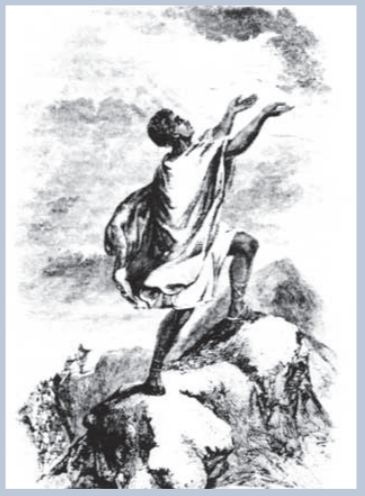4.7: David Walker (c. 1796–1830)
- Page ID
- 57469
David Walker’s father was a slave; his mother, a freed slave. Due to his mother’s status, Walker was also granted status as a free black upon birth. How he was taught to read and write is unknown, as are the places where he traveled around the South before electing Boston as his home. In 1826, he married Eliza Butler, daughter of a well-respected black family in Boston. Walker started a clothing store and involved himself in the Abolition movement. He supported the newspaper Freedom’s Journal and joined the Massachusetts General Colored Association. Most significantly, he wrote An Appeal to the Colored Citizens of the World, but in Particular, and Very Expressly, to Those of the United States (1829).

Image \(\PageIndex{1}\): Frontispiece from David Walker’s An Appeal to the Colored Citizens of the World
In his Appeal, Walker particularly took issue with Thomas Jefferson as a racist and hypocrite—as indicated especially by Jefferson’s Notes on the State of Virginia. Walker expanded that indictment against whites in America who owned slaves or who supported slavery, particularly attacking their religious hypocrisy and betrayal of the ideals of the Declaration of Independence. He also directly addressed blacks, advocating resistance—even violent resistance—if necessary. After its publication, Walker worked to disseminate it throughout the United States but particularly in the South, relying on the mail and on black sailors. The remarkable militant attitude of his Appeal gained Walker dangerous notoriety, as pro-slavery Southerners sought either his capture or death. It also inspired other black Abolitionists like Henry Highland Garnet (1815–1882) who also advocated blacks’ violent resistance to slavery.

